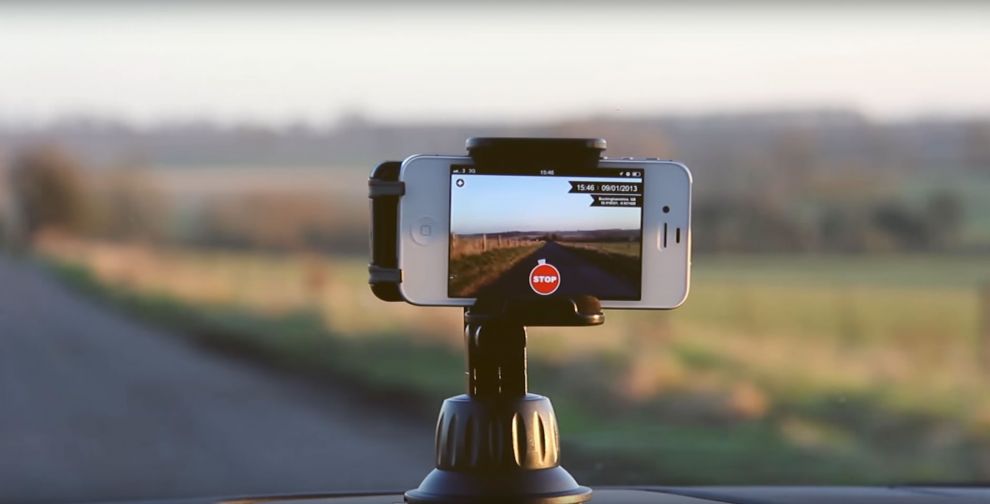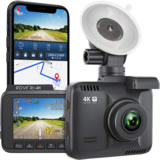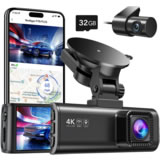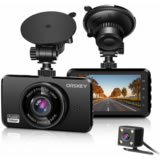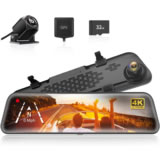Texas Dashboard Camera Laws
Are dashboard cameras legal in Texas? With quality camera prices always dropping, more drivers are looking to record footage of their driving adventures. It can be for something reasonable such as having additional proof in case of accidents, or something illegal like recording yourself going way over the speed limit.
Recording footage while driving isn’t uncommon these days, but is it really legal? In this article we’ll explore relevant dashboard camera laws in Texas you need to be aware of.
Texas laws do not make any specific mention of dashboard cameras or other recording devices in vehicles. But simply because something isn’t regulated by law does not make it illegal.
Our legal experts have concluded that car dashboard cameras in Texas are legal to use, but make sure you:
- do not place cameras in any way which can obstruct your view of the road
- avoid recording audio
There are several pertinent laws which are related to using car dashboard cameras. Below we’ll explore these regulations and explain why and how using dashboard cams in Texas is legal.
Obstructing driver view
Dashboard cameras are installed on vehicle dashboards, clearly. Texas laws (section 545.417 in Texas Transportation Code) prohibit driving vehicles where driver’s view of front or sides is obstructed.
Dashboard cameras can potentially be considered as obstructing driver view of the road. Most important thing to consider here is that you should never affix them to the windshield. Placing dash cams in the corner between windshield and dashboard on front passenger side is the safest bet.
There are no specifics as to what constitutes obstructed vision, so go for the smallest camera you can find. Make sure its placement also does not obstruct any air bags or your view of exterior rear view mirrors.
Two other potentially relevant regulations are Vehicle TV laws, and Distracted Driving laws. To summarize both, if you use a screen or display to view live footage recorded from your camera, you can not mount it within driver’s view. Please review both those articles in detail in case you intend to connect any screens to your camera as there are very important exceptions and rules to using those.
Wiretapping and eavesdropping laws
Some states do not permit recording other people, as it is considered a violation of privacy or even a violation of state’s wiretapping laws. In Texas you can legally record conversations you are part of. In other words, at least one party of a conversation must be aware or consent to being recorded.
Recording audio
Many dashboard cameras have the capability to record audio. It is almost always the best case to simply mute audio recording to completely avoid any legal ramifications. In case you still want to record audio, ensure it is not done without at least one passenger knowing about it.
This can become problematic when leaving your car at a mechanic for example. You may be eager to record their conversations while you leave your vehicle for the day, but that is illegal. In fact it is a crime with serious penalties, so you should always either mute or disable recording altogether, or inform individuals that they’re being recorded and preferably get their written consent.
Recording video footage
Recording video is not illegal. As long as you keep your recording device focused on the road and not specific individuals, their privacy can be reasonably protected, as can your legal rights. Otherwise, every teenager with a smartphone would end up paying massive fines and end up with a criminal record.
On the other hand, recording pedestrians or other drivers without their permission and posting it on YouTube can get you into some trouble. While you do own the rights to the footage, it is strongly recommended to blur faces, license plates or other identifiable information if you intend to post videos publicly.
Recording police officers
And what about recording law enforcement? Catching a police officer doing something they shouldn’t during a traffic stop is appealing, but it’s also legal. Police may ask you to stop recording in which case you probably should (but still not required as long as you are not interfering with police work), but otherwise it is lawful to record officers under First Amendment. Police also does not have a right to ask for your footage without a warrant, nor review or use the footage to determine whether you committed a traffic violation.
Can dash cam footage be used as evidence?
Video footage from car cameras can be used as evidence, either for or against you. It is possible dashboard camera footage will not be used in court, as attorneys can always claim the footage may have been altered, but such cases are rare.
In vast majority of cases, having dashboard cam video of a traffic accident can help greatly in proving your innocence in court, or even help you reach out-of-court settlements with the guilty party.
References and sources:
- Texas Transportation Code, Sec. 545.417 – Obstruction of operator’s view or driving mechanism
- Texas Penal Code 16.02 (wiretapping laws)
Conclusion
Based on all relevant Texas laws, using dashboard cameras in vehicles is legal. There are no rules or regulations which forbid recording audiovisual footage while driving.
Dash cams are becoming more and more popular and it’s always important to stay within law. If traveling out of state make sure you review local state laws, as recording audio may be illegal in some parts of US. In fact, we recommend contacting your local law enforcement and asking them directly to ensure you are completely within the law.
Two very important rules to keep in mind is to never record conversations between people who are not aware they’re being recorded, and reasonably protect the privacy of others if you post videos publicly.
More importantly, make sure dashboard cameras are placed in a way that does not hinder or obstruct your view of the road on any side.
